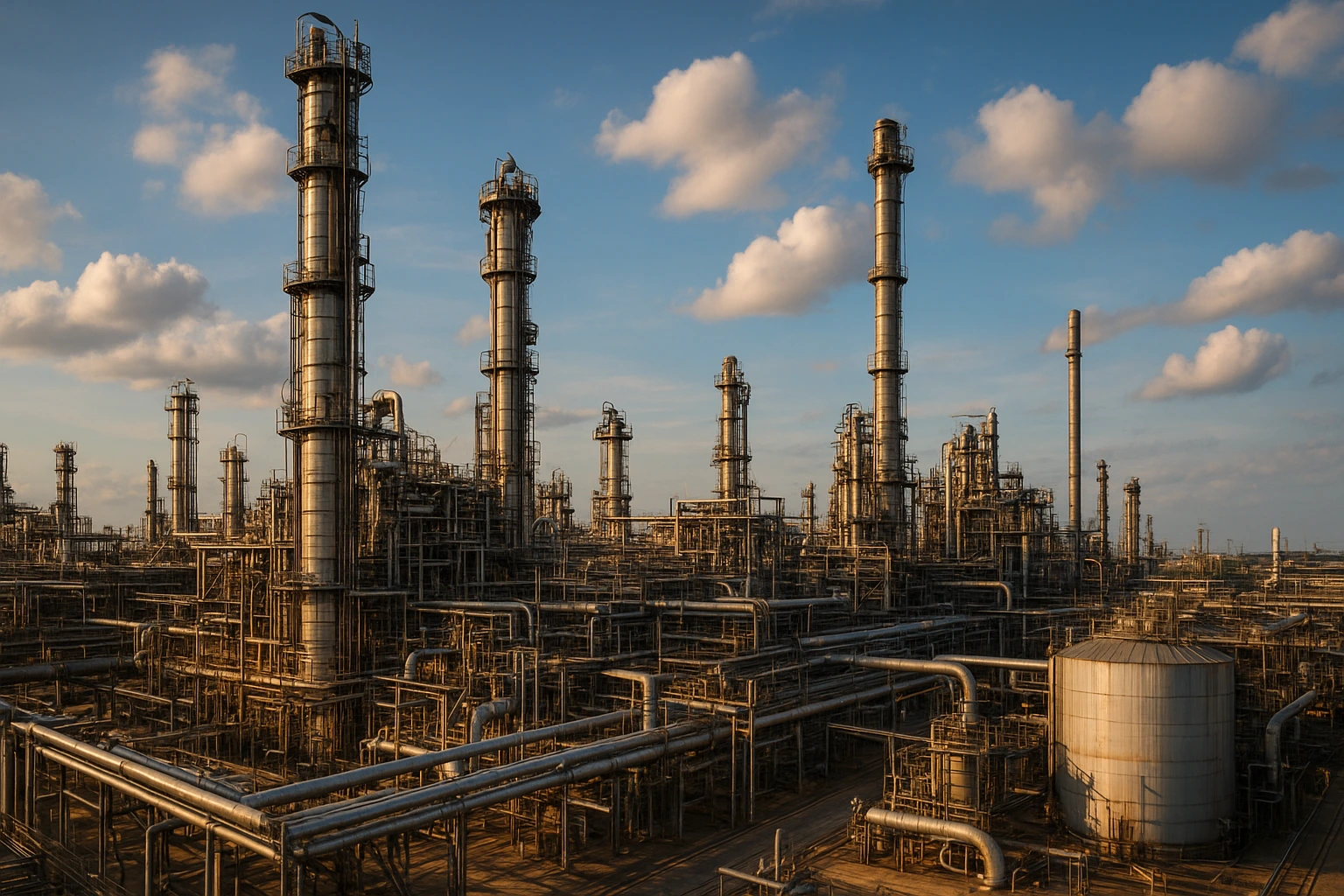LAGOS, Nigeria — Nigeria’s Dangote oil refinery, already the largest in Africa, is planning an ambitious expansion that could make it the biggest oil refinery in the world within three years, according to its owner, billionaire industrialist Aliko Dangote.
“We are more than doubling the barrels per day from 650,000 to 1.4 million,” Dangote said Sunday during a press conference in Lagos. “This expansion will make the Dangote Refinery the largest refinery globally, surpassing India’s Jamnagar Refinery.”
The privately owned refinery, which began operations in 2024, represents a turning point for Nigeria’s long troubled energy sector, which has historically relied on fuel imports despite being one of the world’s top oil producers.
Nigeria has struggled for decades with underperforming state owned refineries plagued by corruption, mismanagement, and underinvestment.
For years, the nation imported nearly all of its refined petroleum products, a paradox that drained foreign reserves and kept fuel prices volatile.
The $20 billion Dangote refinery, situated on the outskirts of Lagos, was conceived as a solution to this dependence. Since starting production, it has already reshaped Nigeria’s domestic fuel market, forcing a recalibration of prices and competition among importers.
“This project is a gamechanger for Nigeria,” said Chinedu Okafor, a petroleum economist at the University of Lagos. “It has begun to correct decades of inefficiency and has shown what private enterprise can achieve where government owned refineries failed.”
Dangote’s latest announcement, however, signals an even broader ambition to transform Nigeria into a global refining hub serving markets across Africa, Europe, and the Americas.
Energy analysts say the refinery’s planned capacity of 1.4 million barrels per day would surpass India’s Jamnagar complex, currently the world’s largest, which refines about 1.24 million barrels daily.
“The implications are significant not only for Nigeria but for global refining dynamics,” said Adewale Oyetunji, an energy policy expert based in Abuja.
If Dangote succeeds, it could tilt trade flows across West Africa and beyond. We might see Nigeria exporting more refined products than crude oil, which would be unprecedented.
However, some experts warn that monopoly concerns and labor disputes could undermine these ambitions. The refinery’s dominance could discourage new entrants and limit competition in Nigeria’s refining sector.
“There’s no question that Dangote has broken barriers,” said Oyetunji. “But a single player controlling so much of the downstream sector could raise questions about pricing transparency and labor conditions.”
Nigeria currently produces about 1.5 million barrels of crude oil per day, below its OPEC quota of two million. If Dangote’s refinery achieves full expansion, it could theoretically process nearly the entire national output.
By comparison, refineries in Saudi Arabia and India operate within similar capacities, but few are privately held. The project’s sheer scale underscores a rare private sector milestone in a region long dominated by public oil interests.
The facility also exports aviation fuel to the United States, Europe, and Brazil, signaling a move toward diversification in its export portfolio. Industry observers say this could help Nigeria reduce its fuel import bill, which has historically exceeded $10 billion annually.
According to the Nigerian National Petroleum Company (NNPC), domestic refining capacity stood below 20 percent before Dangote entered the market.
“This refinery has more than doubled our national refining capacity within one year,” said an NNPC official who spoke on condition of anonymity.
In Lagos, where fuel scarcity once paralyzed daily life, residents say the refinery’s impact is already visible. “Before this refinery, fuel queues were normal,” said motorist Ibrahim Musa, who runs a small transport business.
“Now petrol is easier to find and prices are more stable. If they expand, maybe things will get even better.” Still, not everyone shares Musa’s optimism. Recent labor unrest has cast a shadow over the refinery’s rapid growth.
In September, a fuel tanker drivers’ union went on strike after Dangote introduced its own gas powered fleet for fuel distribution. The dispute, which lasted two days, was resolved after government mediation.
Union representatives alleged that the company fired 800 Nigerian workers for unionizing, replacing them with 2,000 foreign workers. The refinery dismissed the claims as “false,” attributing layoffs to “acts of sabotage.”
“The tension shows the need for better labor relations,” said Ngozi Eke, secretary of the Petroleum and Natural Gas Senior Staff Association of Nigeria (PENGASSAN). “No company, however big, should operate above fair labor practices.”
Dangote has announced plans to list the refinery on the Nigerian Stock Exchange next year, describing it as a move toward broader ownership and market transparency. Analysts view the potential listing as a strategic step to attract institutional investors and strengthen governance.
“A public listing could improve oversight and give Nigerians a stake in one of the country’s most transformative enterprises,” said Okafor of the University of Lagos.
Meanwhile, another major private refinery, owned by billionaire Abdulsamad Rabiu’s BUA Group, is under construction and expected to begin operations within two years, potentially introducing competition in a sector long dominated by imports.
If both projects succeed, Nigeria could become a net exporter of refined fuels by 2030, a milestone that would redefine its position in the global energy market.
Dangote’s refinery expansion reflects both the promise and the challenges of Nigeria’s push for energy self sufficiency. While the project stands as a symbol of industrial ambition and African entrepreneurship, it also faces scrutiny over labor practices, market control, and economic sustainability.
“The refinery represents Nigeria’s potential at its best,” said Oyetunji. “But realizing that potential will depend on how fairly and efficiently it is managed in the years to come.”
